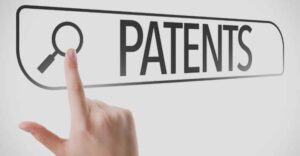
Patent Valuation
Patents are intellectual property (IP) that may need to be valued for a number of purposes. These include but aren’t limited to; accounting, tax, mergers and acquisitions and Court proceedings that include family law, shareholder disputes or bankruptcy actions.
How to Value a Patent
There are different accepted methods for patent valuation, including cost, income, and market methods.
Cost method. This approach indicates that the patent’s value is the replacement cost, which is the amount that it would cost to replace the item. Simply put, it would be the amount it would cost to replace the invention.
Income method. The theory of the income approach is that the value of the business is the present value of the future economic benefits (income stream) it’s expected to provide. The economic benefits can be determined from historical results or future projections. When using the discounted future cash flow method, forecasts are typically prepared for five years and then these economic benefits are converted to the present value using a discount rate.
Market method. The market approach draws comparisons to publicly traded companies or private companies that are similar to the subject company. The market approach uses empirical evidence of value using databases for private businesses and companies. A major disadvantage with the market method is that it ends up comparing general information in the market, it is unable to consider specific factors leading to a specific transaction. Using this method, you’ll need to determine what a potential buyer would pay for a similar product or service. Therefore, you can value your patent by looking at similar patents.
Market size for the Product
Patents providing a highly specialized improvement to existing technology or that support a niche product may, in certain instances, have a relatively limited value. Alternatively, patents that contribute to products with a wide market appeal or that represent a considerable improvement to an existing product in an established market may be likely to generate significant economic returns.
Many patents represent modest or incremental improvements to existing products or technologies. These improvements on their own may be quite valuable but could be relatively less valuable in comparison to existing, alternative, market-acceptable means of accomplishing the same thing.
Rarer, but often more valuable, are patents that might be considered pioneering patents, i.e., those that create whole new industries, markets, or product lines. The pioneer patent holder may obtain a first-mover advantage that competitors cannot easily or rapidly replicate. Properly prepared and prosecuted, those patents may afford a relatively broader scope of protection and the potential for a sustainable competitive advantage. For these reasons, they can be especially valuable. If you require a patent valuation contact BRV today.
The principle of Business Reports and Values, Lee Goldstein, has been involved in Business Valuations since 1985. He holds the following qualifications:
Double Major Degree in Accounting and Finance
Diploma in Forensic Accounting
Graduate Diploma in Valuation
Advanced Certificate of Business
Advanced International Certificate in Intellectual Property.
Lee has conducted numerous intellectual property valuations covering a diverse range of industries, and is often called upon to provide expert testimony in judicial matters. Lee has valued businesses and intellectual property worth over $3.2 billion.
Lee Goldstein has been the Triennial Certificate holder and Licensee of a Business Broking Company since 1992.
